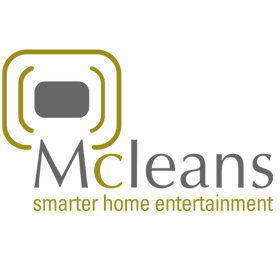Description
Power output: 2 x 303W in 8 ohms, Dual Mono
Minimum load: 2 ohms
Analog inputs: 2 x Balanced (XLR), 2 x Unbalanced (RCA)
Digital outputs: 1 x Coaxial (BNC) S/PDIF - 24/192
Digital inputs: 1 x Coaxial (BNC) S/PDIF - 24/192, DSD64 (DoP), MQA 8x, 1 x Coaxial (RCA) S/PDIF - 24/192, DSD64 (DoP), MQA 8x, 3 x Optical S/PDIF - 24/96, MQA 8x, 1 x USB -32/384, DSD256 (DoP), MQA 8x, 1 x Network - 24/192, DSD64, MQA 8x
Line level outputs: 1 x Unbalanced fixed (RCA), 1 x Unbalanced variable (RCA)
Streaming: Spofity Connect, AirPlay, Google Cast, Roon Ready (pending), Tidal Connect, UPnP
Streaming formats: MP3, WAV, FLAC, ALAC, AIFF, DSF, DFF, AAC, PCM, MQA, Ogg
Frequency response: 5Hz-100kHz
Signal-to-noise ratio: More than 100dB
Crosstalk: Less than -100dB
Distortion: Less than 0.005% @ 50W 8 Ohms 1kHz
Intermodulation: Less than 0.01% (19kHz + 20kHz)
Damping factor: More than 4000 (main power output stage)
Dimensions/weight: 17,1cm x 43cm x 44,5cm (HxWxD), 22kg
Dimensions/weight US: 6,74" x 16,93" x 17,52" (HxWxD), 48,51 lbs
Google Cast is a trademark of Google LLC.

The story begins in 1988. Bent Holter, a student at the Technical University in Trondheim (NTNU) decided to do a thesis under the original design of the transistor used in amplifiers, that would cure the problems of traditional hi-fi systems. Enemy number one was distortion. Holter somehow could not accept the fact that when we supply a simple signal to an amplifier, the output reproduces that signal plus something else; distortion produced by the electronics.
Fighting distortion usually means deterioration of other parameters, including damping factor. Holter decided to break free from classic schematics and developed a project that became the basis of what we know today as SoundEngine Technology. And where does the name of the company come from? Well, during his spare time Bent played in a rock-metal band called The Hegel Band. When they needed amplifiers for concerts, he suggested building them himself. His ideas took on real shape, but it took lots of money to refine the technology. Help came from Telenor - one of the biggest players in the telecommunications industry.
The early 90s were a period of initial prosperity for the brand. First, they ensured the patented solution known today as SoundEngine. Later a DAC was developed (1994) and the first CD Player came (1996). Over the next eight years, the company has steadily improved its product range and generated more profit year on year. When the financial crisis came, most companies immediately took a defensive strategy which meant cutting costs. Hegel played differently. He hired new engineers to design devices. Sometime later, brand new D/A converters were born.
Today Hegel is one of the best-established brands on the Hi-Fi market. We produce integrated, pre and power amplifiers as well as CD players and some of the most modern and sophisticated D/A converters. SoundEngine Technology was just a start. Today there are six more original technical solutions in Hegel's portfolio. The company has dealers in 54 countries and its products are sold all over the world. Awards and press reviews speak for themselves.
Payment & Security
Your payment information is processed securely. We do not store credit card details nor have access to your credit card information.








